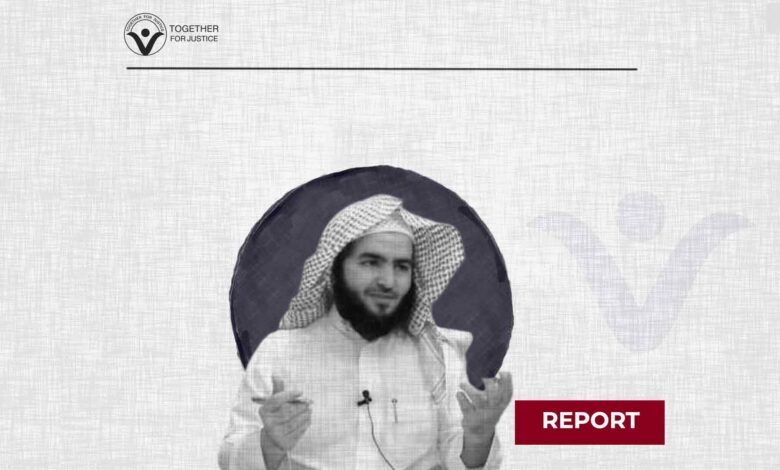Sheikh Hamoud bin Ali Al-Amri: A Voice Silenced for Opposing Normalization with Israel

Seven years have passed since the notorious September 2017 crackdown in Saudi Arabia, when the regime launched a sweeping campaign against intellectuals, scholars, writers, and activists who dared to speak up for freedom of expression and advocate for democratic reforms. Among those targeted in this brutal wave of arrests was Sheikh Hamoud bin Ali Al-Amri, a prominent religious scholar and vocal critic of the Saudi regime’s growing ties with Israel. Al-Amri’s stance against normalization with Israel—based on his deep opposition to the occupation of Palestine and Israel’s ongoing human rights violations—has cost him his freedom.
A Courageous Stance Against Normalization
Sheikh Hamoud Al-Amri’s opposition to normalization with Israel was clear and unwavering. He viewed the occupation of Palestinian land as illegal and morally indefensible, and he spoke out against any attempts to build political, economic, or diplomatic ties with a state that has committed atrocities against the Palestinian people. Al-Amri believed that normalization would only embolden the Israeli government, legitimizing its actions and undermining the Palestinian struggle for justice, self-determination, and freedom.
For Al-Amri, normalization was not just a political issue, but a deeply moral one. He believed that supporting the Palestinian cause was a religious and ethical duty, and that any attempts to establish relations with Israel amounted to a betrayal of both the Palestinian people and Islamic principles. His public statements denouncing normalization resonated with many Saudis who shared his concerns, but they also put him in the crosshairs of a regime eager to silence dissenting voices.
Arrest and Imprisonment
In the days following his outspoken criticism of normalization efforts, Al-Amri was arrested in September 2017 as part of the wider crackdown orchestrated by Crown Prince Mohammed bin Salman. Like many others arrested during this period, Al-Amri was not given any formal charges at the time of his detention, nor was he granted access to legal representation. His family was left in the dark, uncertain of his fate or the reasons for his imprisonment.
In December 2020, the Specialized Criminal Court sentenced Sheikh Hamoud Al-Amri to nine years in prison, based on vague and unsubstantiated charges. The court did not present any credible evidence to support the accusations against him, and Al-Amri was denied the opportunity to defend himself in a fair trial. His sentencing was a clear message from the Saudi regime: dissent will not be tolerated, especially when it challenges the kingdom’s foreign policy.
Normalization at the Expense of Justice
The Saudi regime’s growing interest in normalizing relations with Israel has been a contentious issue both domestically and internationally. While some see it as a pragmatic step toward regional stability and economic cooperation, critics like Al-Amri argue that it comes at the expense of justice for the Palestinian people. By normalizing ties with Israel, Saudi Arabia is seen as abandoning the Palestinian cause, a cause that has long been central to the Arab and Muslim world.
For Al-Amri, the issue is not just about geopolitics or diplomacy—it’s about standing up for the rights of a people who have been dispossessed, oppressed, and subjected to decades of violence and occupation. He saw normalization as a betrayal of these principles and a concession to an aggressor, and he was not afraid to voice his opinion, despite the personal risk.
A Call for Action
Sheikh Hamoud Al-Amri’s imprisonment highlights the Saudi regime’s broader efforts to stifle dissent and suppress voices that challenge its policies. His case, like many others, serves as a stark reminder of the human cost of speaking truth to power in Saudi Arabia. Al-Amri’s courageous stance against normalization with Israel may have cost him his freedom, but his voice continues to inspire those who believe in justice and human rights.
Together for Justice calls on the Saudi government to release Sheikh Hamoud Al-Amri and all other prisoners of conscience who have been detained for peacefully expressing their views. We urge the international community to pressure Saudi Arabia to respect basic human rights, provide fair trials, and stop the repression of dissenting voices.




